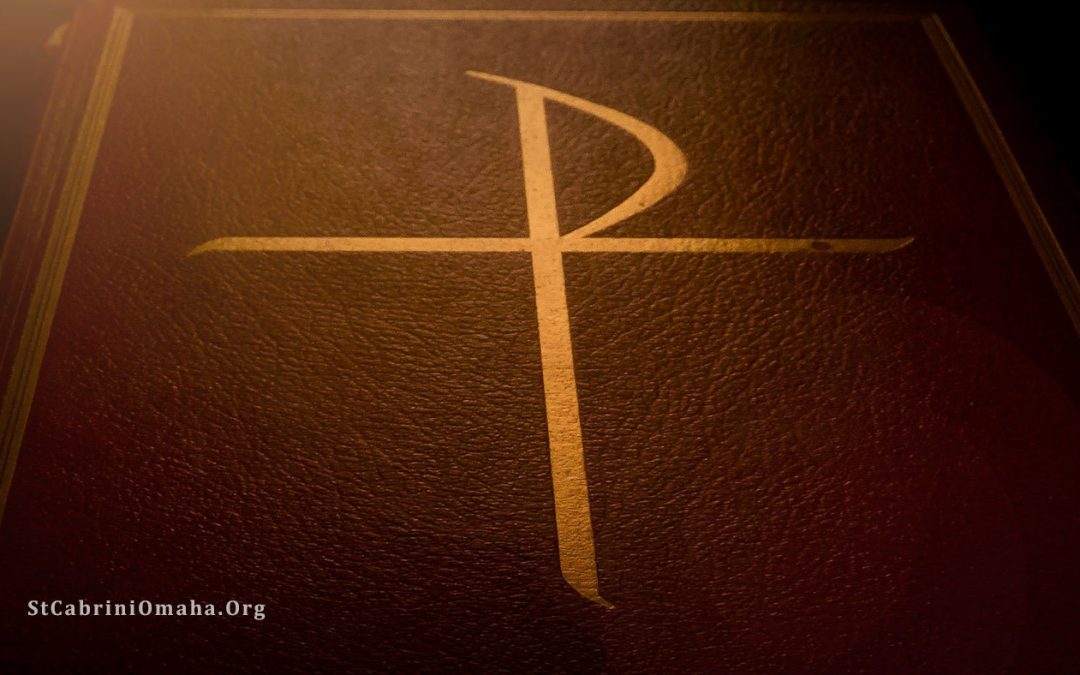Dear Friends,
On Wednesday of this week, in his weekly address, Pope Francis talked about the 1600th anniversary of the death of St. Jerome and his very important work of translating the Bible into the common language of his day so that everyone could read it. The Holy Father also encourages all of us to read the Bible. I think these are timely and important words for us this week as the parish begins a Scripture study on the book of Genesis. Here is some of what Pope Francis said:
The distinctive feature of Saint Jerome’s spirituality was undoubtedly his passionate love for the word of God entrusted to the Church in sacred Scripture. All the Doctors of the Church – particularly those of the early Christian era – drew the content of their teaching explicitly from the Bible. Yet Jerome did so in a more systematic and distinctive way.
Exegetes in recent times have come to appreciate the narrative and poetic genius of the Bible and its great expressive quality. Jerome instead emphasized in sacred Scripture the humble character of God’s revelation, set down in the rough and almost primitive cadences of the Hebrew language in comparison to the refinement of Ciceronian Latin. He devoted himself to the study of sacred Scripture not for aesthetic reasons, but – as is well known – only because Scripture had led him to know Christ. Indeed, ignorance of Scripture is ignorance of Christ.
Jerome teaches us that not only should the Gospels and the apostolic Tradition present in the Acts of the Apostles and in the Letters be studied and commented on, but that the entire Old Testament is indispensable for understanding the truth and the riches of Christ. The Gospel itself gives evidence of this: it speaks to us of Jesus as the Teacher who appeals to Moses, the Prophets and the Psalms in order to explain his own mystery. The preaching of Peter and Paul in the Acts of the Apostles is likewise rooted in the Old Testament, apart from which we cannot fully understand the figure of the Son of God, the Messiah and Savior. Nor should the Old Testament be thought of merely as a vast repertoire of citations that prove the fulfilment of the ancient prophecies in the person of Jesus of Nazareth. Rather, only in light of the Old Testament prefigurements is it possible to know more profoundly the meaning of the Christ event as revealed in his death and resurrection. Today we need to rediscover, in catechesis and preaching, as well as in theological exposition, the indispensable contribution of the Old Testament, which should be read and digested as a priceless source of spiritual nourishment…
…Jerome can serve as our guide…the Bible constitutes as it were ‘the soul of sacred theology’and the spiritual support of the Christian life,the interpretation of the Bible must necessarily be accompanied by specific skills…efforts should also be made to provide all the faithful with the resources needed to be able to open the sacred book and draw from it priceless fruits of wisdom, hope and life.
Sadly, many Christian families seem unable – as was prescribed in the Torah – to introduce their children to the word of the Lord in all its beauty and spiritual power. This led me to institute the Sunday of the Word of Godas a means of encouraging the prayerful reading of the Bible and greater familiarity with God’s word.All other expressions of piety will thus be enriched with meaning, placed in their proper perspective and directed to the fulfilment of faith in complete adherence to the mystery of Christ…
…I would like to pose a challenge to young people in particular: begin exploring your heritage. Christianity makes you heirs of an unsurpassed cultural patrimony of which you must take ownership. Be passionate about this history which is yours. Dare to fix your gaze on the young Jerome who, like the merchant in Jesus’ parable, sold all that he had in order to buy the pearl of great price.
Peace,
Fr. Damian



